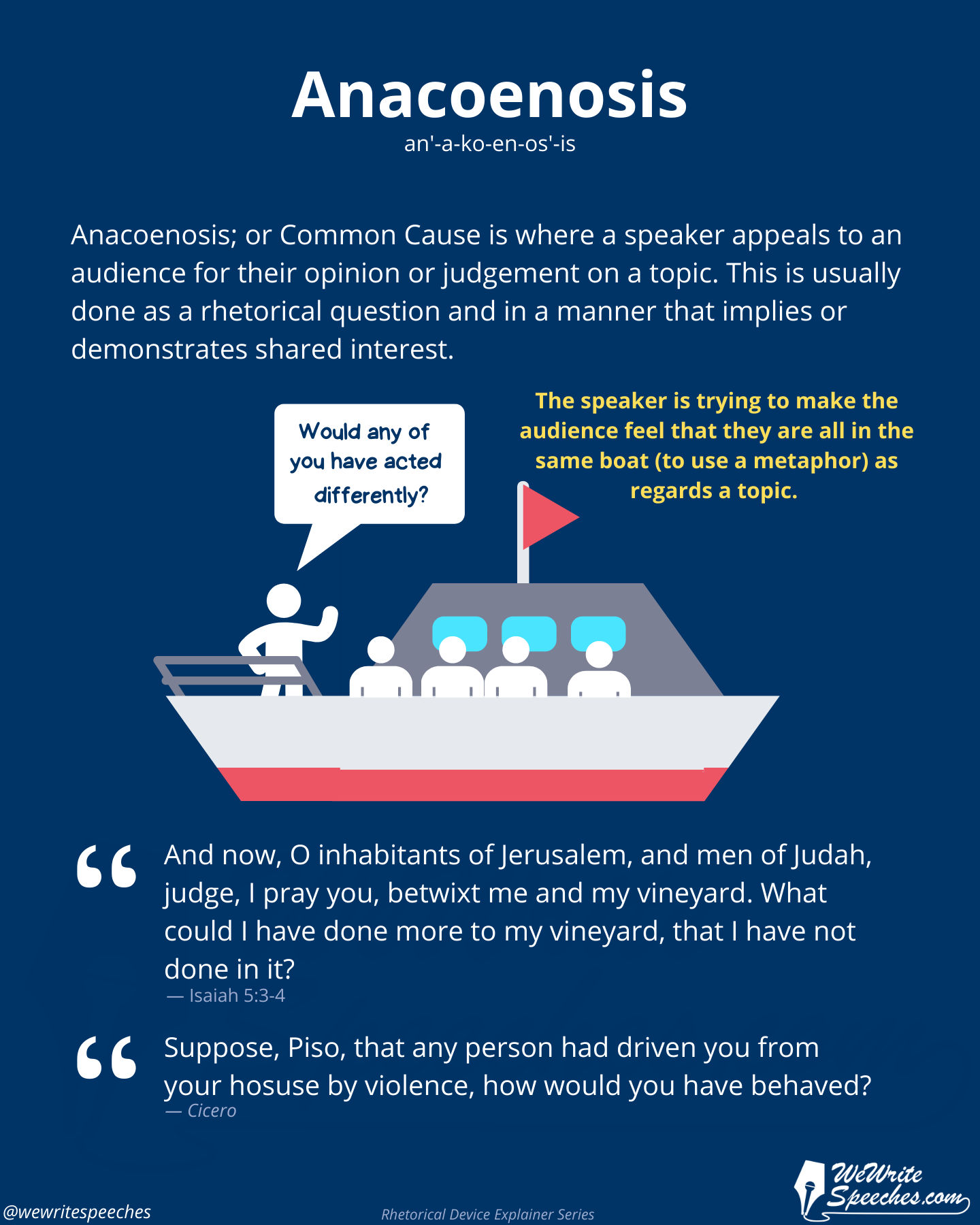Rhertorical Device: Anacoenosis
Anacoenosis, derived from the Greek words ana ("up") and koinos ("common"), is a rhetorical device used in oratory to encourage audience participation and responsive dialogue. This interaction between speaker and audience is thought to increase persuasion and emphasize the importance of audience involvement in public speaking. Anacoenosis is often used as a tool for rhetorical questions, as the speaker appeals to the audience for their opinion or response in an effort to build an open dialogue. By taking an interactive approach and encouraging participation from the audience, anacoenosis can be an effective and powerful way to engage an audience and make an impact.
Examples
And now, O inhabitants of Jerusalem, and men of Judah, judge, I pray you, betwixt me and my vineyard. What could I have done more to my vineyard, that I have not done in it? Bible, "Isaiah 5:3-4"
Suppose, Piso, that any person had driven you from your house by violence, how would you have behaved? Cicero, "Oration for Caecina" translated by C. D. Yonge in 1856 (69 BC)
Friends, Romans, countrymen, lend me your ears!
I come to bury Caesar, not to praise him.
The evil that men do lives after them,
The good is oft interred with their bones;
So let it be with Caesar. The noble Brutus
Hath told you Caesar was ambitious;
If it were so, it was a grievous fault,
And grievously hath Caesar answer'd it.
Here, under leave of Brutus and the rest
(For Brutus is an honorable man,
So are they all, all honorable men),
Come I to speak in Caesar's funeral.
He was my friend, faithful and just to me;
But Brutus says he was ambitious,
And Brutus is an honorable man.
He hath brought many captives home to Rome,
Whose ransoms did the general coffers fill;
Did this in Caesar seem ambitious?
When that the poor have cried, Caesar hath wept;
Ambition should be made of sterner stuff:
Yet Brutus says he was ambitious,
And Brutus is an honorable man.
You all did see that on the Lupercal
I thrice presented him a kingly crown,
Which he did thrice refuse. Was this ambition?
Yet Brutus says he was ambitious,
And sure he is an honorable man. William Shakespeare, "Julius Caesar, Act 3 Scene 2"

